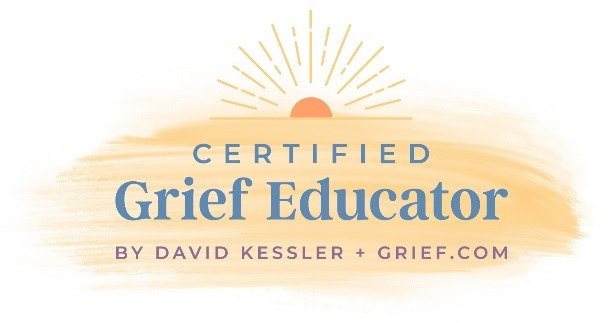I have been through a sequence of challenging life situations in recent years - from cancer, to COVID and retirement, to providing home care for my husband and grieving his death.
My response to radical events like these is to take action. The more demanding the situation is, the less I focus on how I am feeling about it and just get on with doing what must be done.
After eight years of this, I finally hit a wall. Counselling helped me realize that my own well-being was slowly being eroded.
I came to understand that each crisis added to the stresses of the ones before. It was the accumulation of them that became traumatic, wearing down my resilience.
I sought help from friends, clergy, and counsellors, and studied with grief and trauma experts.
I learned that each one of us determines what is traumatic in our own world and that the healthy response to that trauma is to allow the grief to be felt.

Grief Is A Journey
Successful navigation of grief involves acknowledging feelings, letting them be heard, validated and attended to. Grief is a journey. There are many surprises along the way, often difficult, sometimes remarkable, bringing new learnings and insights.
Think of grief as a pathway. When the traumatic event hits, we are thrust unwillingly onto this pathway.
Early Grief
At first, the path is narrow, and the ground is bumpy, even hilly and muddy. Threatening trees loom overhead and block the sun. Maybe there are thorny bushes or poison ivy close to our feet. It is unfamiliar, even terrifying. Maybe the path runs through a poppy field where we experience brain fog and fatigue. All we want to do is sleep.
If we’re lucky, we have guides and supporters along the way. but maybe not. This is early grief.
Eventually the path widens, the trees are friendlier, the thorns give way to grasses and the poppies fade away. The terrors of early grief soften.
Transitional Grief
Memory of the initial event never leaves us; we will never not be changed by it. There will still be bumps and circular side trails which pull us back into the initial pain of loss and memories of a life now changed. I call this transitional grief.
Mature Grief
Finally, we are in a meadow. The sun shines, the breeze is warm, and we can breathe.
This is mature grief. It is the point when our energy returns. We will never forget, but now we are able to replace the pain of loss and form a new purpose for a changed life.
How long does this journey take? It varies with each of us. It depends on how we feel about what has happened, whether or not our available resources can help us and how resilient we are.

Traumatic Events
The event could be a job loss, the breakup of a relationship, the death of a spouse, family member or a dear friend. It could be a move, illness, estranged family, loss of community or even country.
Trying to cope with these changes alone is difficult, if not impossible and can lead to isolation and clinical depression.
What Does A Grieving Person Need Most?
Grievers need people to walk alongside them, to hold space with them. They want … no, need, to talk about what happened and how they feel about it … even someone just to sit in silence with them.
Sometimes simply having the practicalities of living looked after can help, especially in the early stage. They may appreciate having a meal or laundry service provided, being driven to appointments, a visit or a phone call every few days at first, then weekly and monthly. They want to be remembered and supported.
Whether you are grieving or helping someone who is grieving , I wish you solace and healing in this Journey. And if you need counselling, this is what I do.
_____________________________________________________________________
I invite you to comment on what you read here, ask questions and engage in discussion in the Comments section. Please also feel free to join a discussion group with me or meet one-on-one. Send me an email grieftalk1to1@gmail.com.
Cathy Carphin is a Certified Grief Educator, writer and poet, living in Victoria, BC, Canada. She leads healing conversations on grief.
More articles by Cathy can be found by scrolling this page and by searching her name online.
Discover your path to healing with professional guidance and a supportive community. Subscriptions, sharing and value-for-value donations are welcome. They encourage the writer and help keep this page going.



Cathy, you are able to articulate such wisdom and insight. I have always been a take action person too but often grief says not this time. Thank you for your writing 💙💚🌈